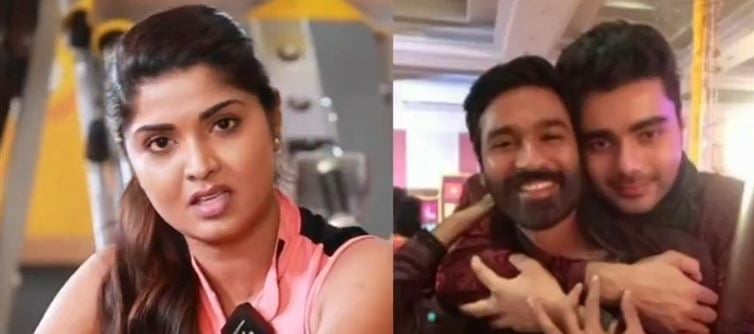
A Storm Bigger Than One Allegation
The tamil entertainment world is once again staring at the mirror it has long feared — a mirror that reflects not glamour, but gatekeeping, power asymmetry, and alleged exploitation behind closed doors. A young actor’s recent claims in an online interview have triggered a surge of conversation not merely about one incident, but about the systemic vulnerability faced by newcomers chasing opportunity in an unregulated talent pipeline.
1️⃣ Popular Actor Speaks Out Publicly
The actor appeared in a short recorded interview and described receiving communication that she interpreted as an inappropriate expectation tied to a casting opportunity. She stated she declined and did not hear further about the project.
2️⃣ social media Response Was Instant & Polarized
Within hours, the clip went viral, sparking hashtags supporting industry reforms, transparency, and grievance mechanisms, while others questioned timing, proof, and motive — a pattern seen repeatedly in #MeToo-era disclosures.
3️⃣ Why Allegations Like These Hit Hard
In film industries worldwide, access to roles is not standardized, leaving space for perceived informal negotiation, gatekeeping, or misuse of influence.
Such claims trigger collective anxiety because thousands of aspirants depend on unofficial networks rather than formal casting systems.
4️⃣ A Pattern, Not an Isolated Fear
From hollywood to Bollywood, and kollywood to the K-drama world, multiple testimonies over the years highlight recurring themes:
Closed-door auditions
No independent grievance body
Unwritten rules and oral promises
Career threats tied to non-compliance
5️⃣ The Legal & Ethical Lens
Both false accusations and predatory exploitation can cause irreversible harm.
Therefore, due process, evidence assessment, and independent review are crucial.
6️⃣ The Bigger Question: Where Are the industry Safeguards?
India’s entertainment industries still lack a standardized:
✔ harassment reporting cells
✔ mandatory intimacy protocols
✔ credential verification for casting agents
✔ formal complaint pathways
Until these exist, allegations will always live between shock and uncertainty.
🧨 Closing Mic-Drop
There are two dangers:
Believing every accusation instantly
Dismissing every accusation instantly
Both can destroy lives.
The answer is not silence — it is structure.
Real safety in cinema doesn’t emerge from courage alone — it requires policy, accountability, and independent oversight.




 click and follow Indiaherald WhatsApp channel
click and follow Indiaherald WhatsApp channel